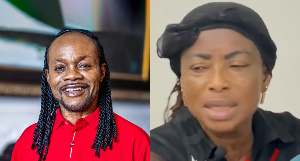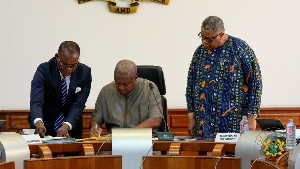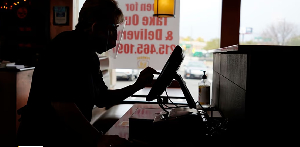HON. YAW BARIMAH, Minister of Works and Housing, has expressed deep concern over the rigid application of 5% contribution by the various communities towards the cost of rural water projects.
This, he felt, may cause some hardships to certain communities by denying them access to potable water.
He explained that such communities have been so impoverished over the years that they have real and genuine difficulties of raising the community's contribution percentage.
Speaking at this year's Annual Donor Conference held at Agona Swedru, he hinted that the government would continue the National Community Water and Sanitation Programme (NCWSP) launched in 1994 and stressed on the need for a careful review of some of the tenets of the National Strategy to identify areas that need modification.
Assuring the donor agencies of transparency and fairness, Yaw-Barimah urged the representatives of the Donor Agencies to institutionalize the joint donor review process in order to have impact on new investments in the sub-sector.
The Central Regional Minister, Hon. Isaac E. Edumadze, in his welcome address, stated that the Community Water and Sanitation Agency (CWSA), with the assistance of AFD, has constructed a total of 816 boreholes fitted with foot pumps, 18 small towns water supply systems, five impounded catchment pilot water supply scheme, 20 institutional latrines and approximately 2,000 household latrines.
The Catholic Arch-diocese has sponsored the drilling of 35 boreholes fitted with hand pumps and World Vision International (WVI), an NGO active in the water sector, has drilled 28 boreholes fitted with hand pumps, the Hunger Project, under its community assistance programme has drilled one borehole fitted with a foot pump and the Village Project, sponsored by the Japanese Embassy, has also drilled two boreholes fitted with foot pumps.
He reiterated that the achievements herein elaborated represent only 47% coverage of potable water in the Central Region and urged the agency to do more to enhance the quality of life of the people.
He tasked the donors to effectively teach the communities on the maintenance of the pumps.
Mr. Stefan Frowen, the European Union (EU) Ambassador and head of delegation, in his address, highlighted some observations and challenges that the donors see in their partnership with the water and sanitation sector.
He suggested that stakeholders in CWSA could think through some of the challenges he outlined and fashion a sector-wide approach that is unique, sustainable and integrated with the government's decentralization and poverty reduction policies.
Mr. Kofi Asamoah, Chief Executive of CWSA, in his address, stated that the expansion of the National Community Water and Sanitation Programme (NCWSP) into four new districts, bringing the total of the participating districts to 93 out of the national total of 110, are some of the achievements.
He said apart from new borehole construction, where the agency performed abysmally, most of the other physical and dynamic indicators were fully attained or satisfactorily achieved.
General News of Friday, 15 March 2002
Source: .
Minister Unhappy With 5% Water Levy On Rural Folk
Entertainment











